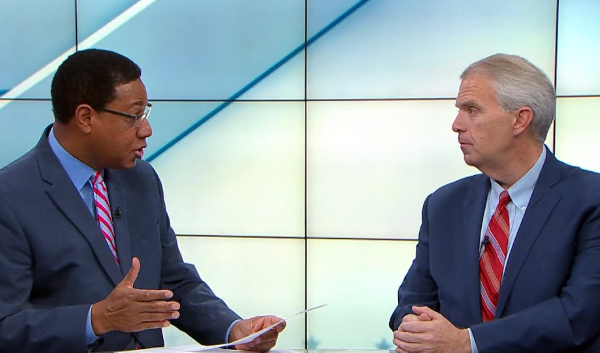Facebook has become such a vital part of audience engagement for local TV newsrooms that the social platform’s change in its news feed algorithm has social media managers scrambling. On January 11, Facebook said that it would prioritize content from “friends, family and groups” and serve up less content from “businesses, brands and media.”
By January 29, the social platform had modified its position.
“We’re updating News Feed to also prioritize local news so that you can see topics that have a direct impact on you and your community and discover what’s happening in your local area. We identify local publishers as those whose links are clicked on by readers in a tight geographic area. If a story is from a publisher in your area, and you either follow the publisher’s Page or your friend shares a story from that outlet, it might show up higher in News Feed.”
The revision could bring some comfort to local TV newsrooms as there are few media outlets that have embraced Facebook more. In a research project conducted on behalf of the Knight Foundation, we found that it’s not unusual for TV stations – even those in the smallest markets – to post to Facebook anywhere from 7,000 to 31,000 times in a single year. Those posts drove a significant portion of traffic to TV station websites – about 26% in 2017 by Parse.ly’s estimate – so these posts certainly played a part in growing a digital revenue stream for station websites.
Though the impact of the various Facebook’s News Feed changes is going to play out over the next few weeks, most social media managers we spoke to expect to see a fairly significant drop in overall interactions on their Facebook posts.
Company-wide, Raycom stations have seen a drop in engagement on Facebook pages since the end of 2017, according to digital media manager Renee Johnson at WLOX-TV in Biloxi, Mississippi. That’s translated to a slight drop in page views and video views. But Johnson says about a month before all these Facebook changes came down, Raycom stations were already talking about how search is becoming more important than social.
“’Search over social’ has become my mantra for 2018,” Johnson said. “So, we’re trying to put a renewed focus on SEO, and building on our core audience of loyal app users.”
Brad Conaway is the former corporate digital manager for Raycom. He says the new Facebook changes are the biggest blow yet for news pages.
“From what I can tell it makes organic reach next to impossible,” Conaway said.
He suggests stations try a number of different strategies to work around the new challenge.
“Try putting a little money behind your best post of the week,” Conaway said. “Or try asking your fans to join a group.”
Some news organizations have been successful in building Facebook groups around communities of interest, such as AL.com’s “The Southern Girl’s Project,” which has a mission to include everyone who wants to improve the future for girls across the South. But success is relative – though the AL.com editors say their Facebook groups have led to better and more nuanced storytelling around a number of topics, the Southern Girl’s group has fewer than 300 members.
Conaway says it is going to take some experimentation to figure out what role Facebook will play in the social strategy for local TV news going forward.
“We’ll have to see exactly how much they prioritize [local news]. We’ll be able to find out the truth on CrowdTangle in a month or so, when all the changes have had a chance to gel a bit.”
But it does seem likely that other social networks will be getting more attention now.
“The move to Instagram and Snapchat and a refocus on Twitter become essential,” Conaway said, “until Facebook changes…again.”
Johnson says they’re not giving up on Facebook.
“We try to always include questions with our posts to elicit conversation, and I’ve started ‘liking’ and replying to more of our followers in the comments, even when they’re not asking questions.”
Johnson said they’re now focused less on the number of posts and more on the quality and that has paid off. For example, she says engagement during an ice storm two weeks ago was “fantastic.”
“Basically, we’re trying to act more like a friend in our interactions. If Facebook is going to give weight to your personal friends, we want our page to be in that category.”








